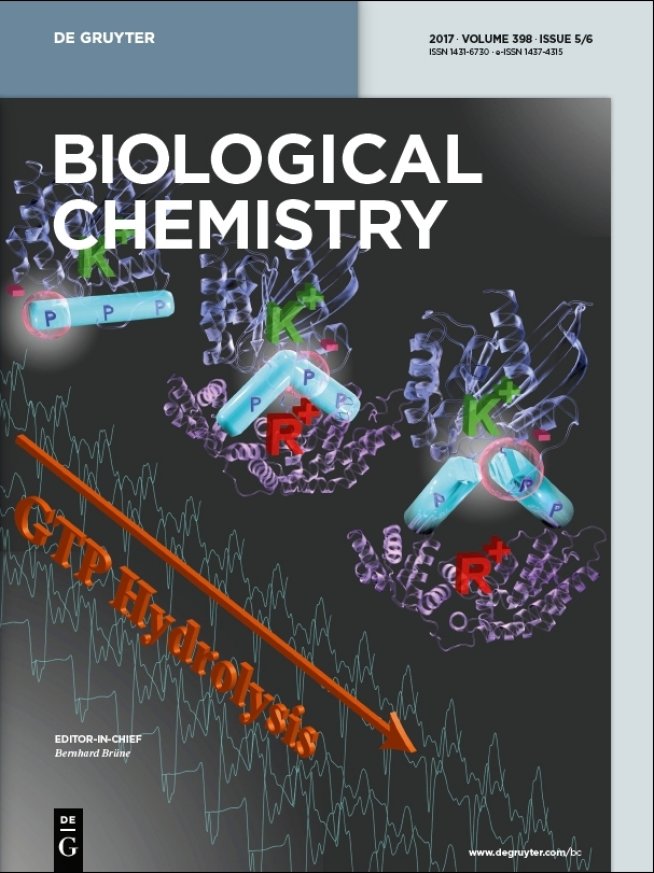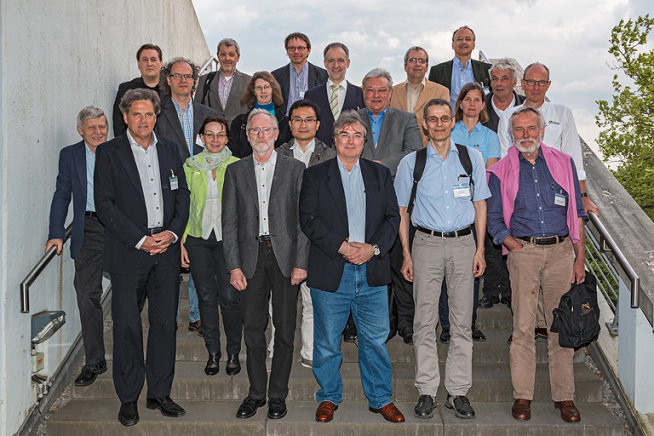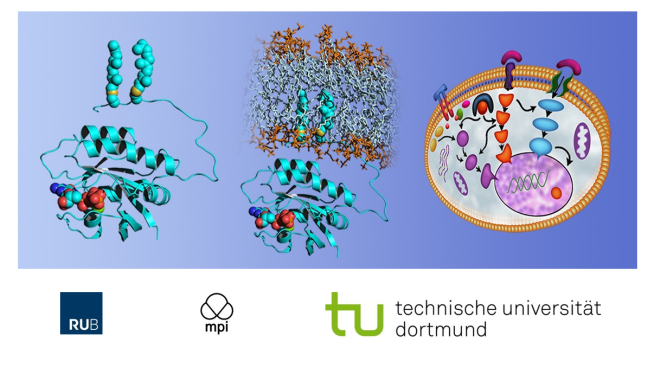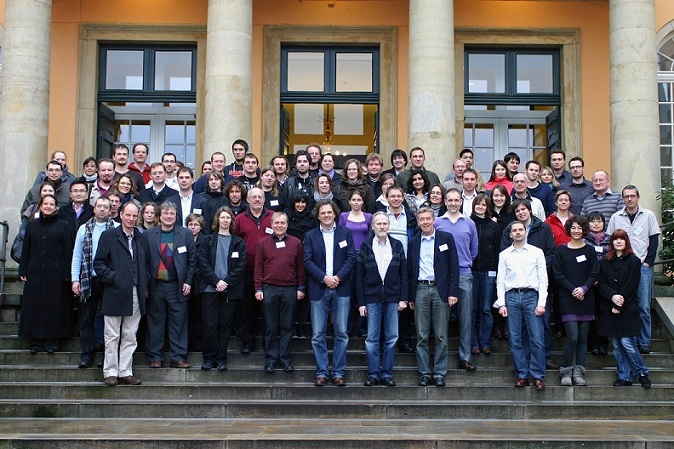
|

|

|

The Collaborative Research Centre (SFB) 642
”GTP and ATP-dependent Membrane Processes” at the Ruhr-University Bochum (RUB)
A Joint Initiative of the Life Science Locations Bochum and Dortmund
Bochum, June 2004
Together with colleagues from the Max-Planck-Institute of Molecular Physiology Dortmund and the University of Dortmund, scientists of the Ruhr-Universität are performing research ranging from processes on biological membranes to molecular basics to cell biology models in the new Collaborative Research Centre (SFB) “GTP and ATP-dependent Membrane Processes”. The Deutsche Forschungsgemeinschaft [DFG/German Research Foundation] has granted five million euro for four years. Participants from the RUB include researchers from the faculties of Biology, Chemistry and Medicine. The spokesman is Prof Klaus Gerwert (Chair of Biophysics, Faculty of Biology), who is also the spokesman of the RUB Protein Center.
Membranes: Control Systems of Biological Processes
Processes on biological membranes are central for the transmission of external signals and substances to the inside of cells. In these processes the functional elements are proteins and the nucleotides GTP and ATP are involved in their control. GTP-dependent processes control e.g. cell division, whilst ATP frequently plays a role in the transport of ions or small molecules via a membrane. Mutations in the involved proteins can disrupt these vital processes and trigger diseases such as cancer. Therefore, an understanding of GTP and ATP-dependent processes on membranes beyond that of basic research is highly relevant in the medical field. The results of the Collaborative Research Centre (SFB) 642 should contribute to the development of medicines with a targeted effect.
Filling Gaps in Knowledge
Researchers worldwide are currently using two modern high-throughput procedures in order to better understand biological processes: With proteomics methods they are identifying the cellular active proteins in their entirety in order to subsequently define the three-dimensional structure of the proteins (structural genomics). This approach was previously rarely successful in membrane proteins because these proteins are difficult to produce in sufficient quantities and with a high level of purity. The new Collaborative Research Centre (SFB) should thus contribute to filling the gap in knowledge in the field of GTP and ATP-dependent membrane processes.
Developing New Approaches
With its twelve sub-projects the new Collaborative Research Centre (SFB) has a wide range of scientific methods. In addition to the application of established techniques, new methodical approaches also play a significant role, above all the so-termed time-resolved FTIR spectroscopy, which can visualise the dynamic processes in membrane proteins and their interactions. Furthermore, the researchers want to develop new methods in mass spectrometry and in the chemical modification of proteins. These new developments in the Collaborative Research Centre (SFB) will make a considerable contribution to defining the structure and dynamics of membrane proteins. Just last year, three mass spectrometers and an X-ray diffractometer were purchased for the equipment of the RUB’s Protein Center. With its modern equipment and its cooperative network, the Protein Center is an important base of the Collaborative Research Centre (SFB).
Involvement of Junior Scientists
In addition to established researchers of international renown, junior scientists are also represented in the Collaborative Research Centre (SFB) as sub-project managers. In future, the third party funding of the Collaborative Research Centre (SFB) can be used to finance positions for approximately 30 doctorate students and post-docs. Additional travel funds enable the young researchers to participate in conferences and visits to cooperation partners abroad. In addition, there are plans in the near future to incorporate a DFG [German Research Foundation] junior group in the Collaborative Research Centre (SFB).
The Collaborative Research Centre (SFB) in Research and Teaching
Many of the sub-project managers are involved in the newly established Bachelor and Master courses so that the findings from the research in the Collaborative Research Centre (SFB) are directly incorporated in their teaching. Students in their main study period will be taught about current research topics and the application of state-of-the-art scientific methods.
Contact
Spokesman
Prof Klaus Gerwert, Chair of Biophysics, ND 04/596

0234/32-24464, -14238 (Fax) gerwert@bph.rub.de
Secretariat
Ekaterina Denisova, ND 04/596

0234/32-24464, -14238 (Fax) ekaterina.denisova@bph.ruhr-uni-bochum.de

